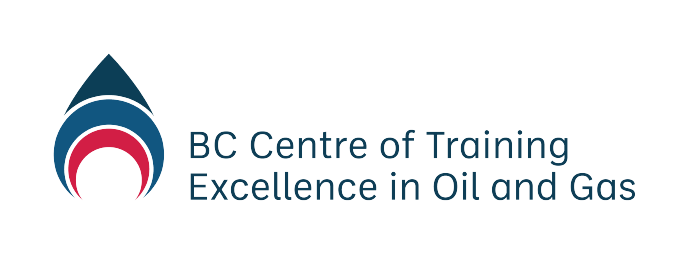-
Module 2.0 How to be Successful in this Course
-
Module 2.1 Introduction to Natural Gas
-
Module 2.2 The Natural Gas Industry in British Columbia
- Overview
- Learning Outcomes
- Natural Gas Science – The Simple Version
- Natural Gas Science – Chemistry
- Natural Gas Science – Physics
- Natural Gas Science – Units of Measurement
- Natural Gas Science – Geology
- Natural Gas Resources and Uses
- Oversight of the Natural Gas Industry
- Understanding Land Rights and Natural Gas
- Energy and the Future
-
Module 2.3 Upstream – Well Site Selection, Preparation and Drilling, Completion, Production, Water Recycling, and Reclamation
- Learning Outcomes
- The Upstream Sector – Extraction and Processing
- The Upstream Sector – Exploration and Site Selection
- The Upstream Sector – Preparation and Drilling
- The Upstream Sector – Completion
- The Upstream Sector – Production
- The Upstream Sector – Water Recycling
- The Upstream Sector – Reclamation
- Upstream Companies and Jobs in British Columbia – Companies
- Upstream Companies and Jobs in British Columbia – Industry Associations
- Upstream Companies and Jobs in British Columbia – Professional Associations
- New Vocabulary
-
Module 2.4 Midstream – Transportation, Processing, Refining
- Learning Outcomes
- The Midstream Sector
- The Midstream Sector – Processing Natural Gas
- The Midstream Sector – Liquefied Natural Gas
- The Midstream Sector – An Emerging Industry
- The Midstream Sector – Processing LNG
- The Midstream Sector – Proposed LNG Projects in British Columbia
- Transportation
- Midstream Companies and Jobs in British Columbia
-
Module 2.5 Downstream – Refining and Markets
-
Module 2.6 Health and Wellness in the Natural Gas Industry
-
Module 2.7 Safety
-
Module 2.8 Terminology and Communication
-
Module 2.9 Jobs and Careers
- Learning Outcomes
- Industry Outlook
- Technology is Changing Workforce and Skills
- Employment in the Natural Gas Industry
- Employment in the Natural Gas Industry – Types of Employment
- Employment in the Natural Gas Industry – Range of Jobs
- Employment in the Natural Gas Industry – High Demand Jobs and Occupations
- Occupational Education and Training
-
Module 3.0 How to be a Valued Employee
-
Module 3.1 Identifying Interests and Skills
-
Module 3.2 Looking for Employment in Natural Gas
-
Module 3.3 Applying for Employment in Natural Gas

Your Learning Starts With YOU
Let’s face it. Instructors can be intimidating. You might be shy or nervous about speaking to them or hesitant to ask questions, but the reason that the instructor is here is to teach you. That is their responsibility to you.
Your responsibility is to communicate with them as soon as possible when there are things that you don’t understand. Instructors don’t always know if the class is keeping up with them or falling behind, and the best thing for everyone is when students ask questions.
Tips for communicating with your instructor:
Remember that your instructor is there to help you. Try to view them as an ally rather than an authority figure.
- Choose a communication method that is comfortable for both of you. If your instructor has provided an email address is it likely okay for you to email them with a question. It is also great if you can speak face-to-face. It is always polite when approaching your instructor after class to ask if it is a good time to talk or if there would be a better time. (Instructors are people too who may need to leave to pick up a child or for other reasons).
- Be as specific as possible about your questions. Your instructor wants to give you clear answers, this is easier if you can be as detailed as possible with your question. For example, “I am having trouble understanding the terminology section in Module 2.8” is much easier to answer than “Module 2.8 doesn’t make sense”. (It might be useful to practice your question with a classmate if you are nervous!)
- Be professional. Just like the tips on being organized at the start of the module are useful outside of the course, being professional in your communications with people other than friends or family is important. Just like it is important for your instructor to know your name and pronounce it properly, you should know what they prefer to be called. Most instructors are happy to have you use their first name, but some might prefer a more formal approach. Also – introduce yourself if the instructor does not know you yet.
- Connect! Talking with your instructor does not have to be about the course materials. If you are on a coffee or lunch break, it is great to start a conversation. Most instructors are happy to talk about your ideas or answer questions about the industry based on their personal experience. Also – instructors who get to know you are often willing to act as job references for you.
Learning Activity 2: Talking to your instructor
You are going to take turns being the instructor and the student.
Instructions
- Find a partner.
- With your partner, practice asking questions that you have about the course.
- Your partner might not know the answer but can give you feedback on whether your question is clear, whether you have introduced yourself, etc.
Prev
Get Organized
